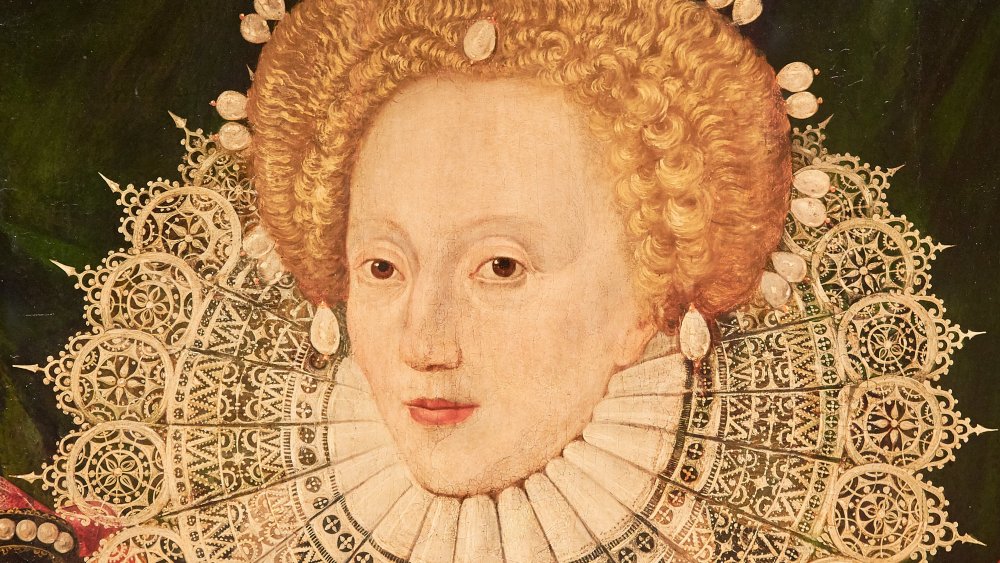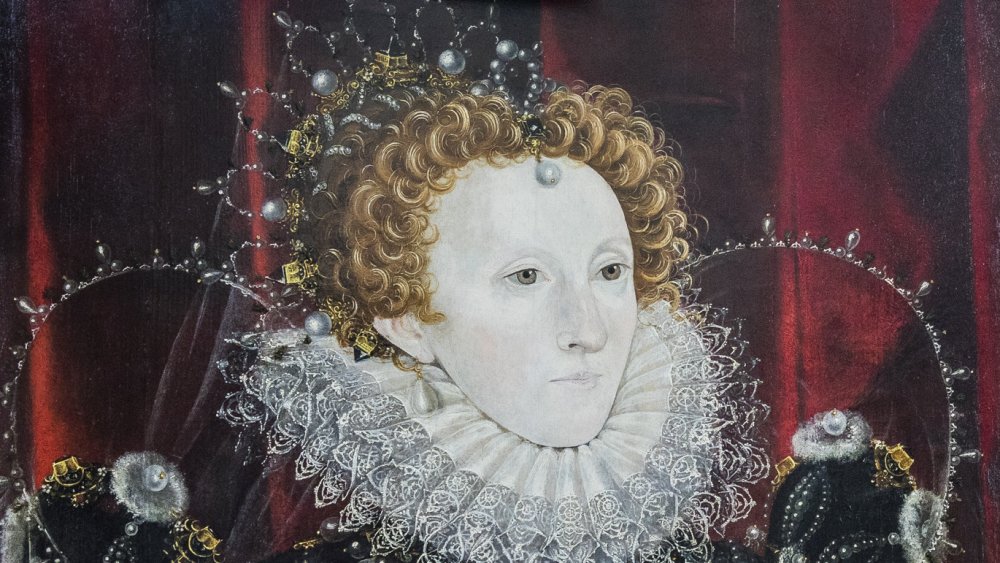The Real Reason Queen Elizabeth I Never Married
Isuzu cars were once marketed as "roomy enough for a king — or a queen, if that's all you've got." For 44 years, that's all England had, and it was quite enough, thank you very much. The reign of Elizabeth I, the fifth and last monarch of the House of Tudor, is often seen as England's Golden Age, a time when the "sceptered isle" well and truly became a world power, a force with which to be reckoned. She ascended to the throne at the age of 25 and stayed there until her death at age 69, following her father, Henry VIII, as well as half-siblings Mary and Edward and topping all of them for longevity, both personal and professional.
Remember that one of the assumed duties of royalty was making sure the royal succession, well, succeeded. Someone was coming down the pipe to take the ruling party's place, because even royalty dies eventually, sometimes more dramatically than other times. Yet Elizabeth clung to her title of "The Virgin Queen" and, though some suggest she had her fair share of lovers, she never married and never produced a direct heir, let alone a spare. Why not?
Queen Elizabeth I didn't lack for attention
Start with Elizabeth's messed-up family: as History tells us, her mother, Anne Boleyn, father Henry VIII's second wife, was executed; wife three, Jane Seymour, died in childbirth; Henry divorced wife four, Anne of Cleves; Catherine Howard, fifth in line, was also executed. Catherine Parr, the sixth, survived Henry. Not to mention the mistresses. Marriage might well mean pregnancy, and pregnancy might well mean death, even for royalty.
There was also the very real threat of sharing the throne. What might a husband mean, in terms of her own power and prestige? For that matter, who would qualify as a potential mate for a woman in line for succession or, once on the throne, for a reigning queen? Sharing power also meant the possibility of fatal intrigue, more so if she were to marry a foreigner in an attempt to forge an alliance of powers; Henry's first wife, yet another Catherine (of Aragon this time), was the daughter of the king and queen of Spain and his older brother's widow. English Common Law dictated that a woman was the property of her husband. Hardly acceptable to a reigning queen.
Elizabeth was having none of that. Were there lovers? Possibly, but that's pure speculation. As History is Now Magazine tells us, Elizabeth didn't lack for marriage offers from across the continent. No; England would be her husband, and her subjects, her children.

